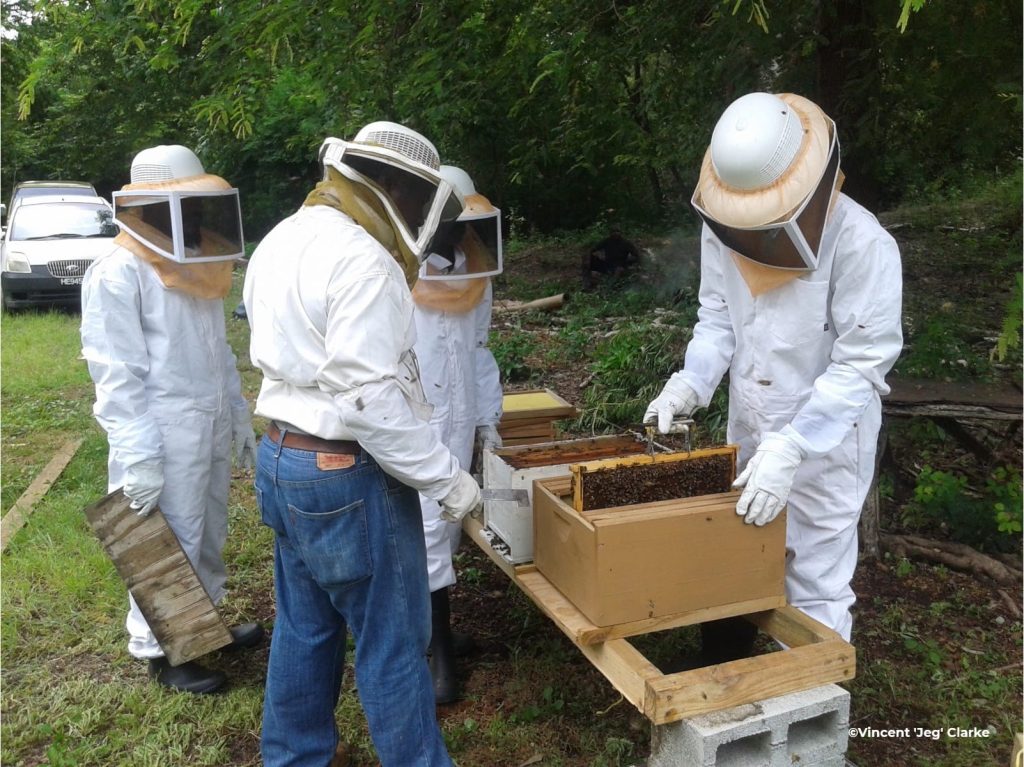Caribbean foresters and resource managers share good examples from St Lucia’s Mankòtè Mangrove to educate on mangrove management good practices.
February 22, 2023 – Bridgetown, Barbados – Mangroves are in decline globally, with mangrove forest cover decreasing by over 1 million hectares worldwide in the past two decades. But in the Caribbean things are different: in this part of the world, mangrove cover actually expanded over the period 2000 to 2015.
The Food and Agriculture Organization of the United Nations (FAO) Sub-Regional Office for the Caribbean organized a webinar on the occasion of the World Wetlands Day 2023 on January 26th. Foresters and resource managers from the region shared mangrove management good practices that have contributed to this exceptional trend. The webinar was an activity of the programme Building Capacity related to Multilateral Environmental Agreements in African, Caribbean, and Pacific countries, funded by the European Union.
The forty-eight (48) participants heard first from Mr Vincent ‘Jeg’ Clarke, a local conservation leader from the community of Vieux Fort in Saint Lucia. For more than three decades, Mr Clarke has been actively involved in the management of the Mankòtè Mangrove, designated under the Ramsar Convention as a Wetland of International Importance.
Mr Clarke’s presentation emphasized that collaborative management of mangroves must empower communities to take collective ownership of the resource, build their capacity to manage the ecosystem sustainably, and find the balance between community livelihoods and ecosystem health. In this way, it is possible to maintain, as Mr Clarke put it, “long time benefits for people to come.”
Traditionally, the mangrove in Saint Lucia was used for charcoal production. Mr Clarke shared the story of a mother and father who were able to put their eleven children through school using their income from making and selling charcoal.
For families in the community, he says, “The Mankòtè mangrove [tells] a livelihoods story.”
Once it became clear that harvesting mangrove trees to make charcoal was exacerbating the pressures on the ecosystem, the community took action to diversify their traditional livelihoods by adopting new income generating activities, including mangrove tours and sea moss farming and, most recently, beekeeping. The beekeeping has been particularly successful: it has produced an award-winning mangrove honey, and the presence of pollinators in the mangrove has been noticeably beneficial for ecosystem flourishing. Additionally, the community has established a mangrove nursery and is working with national partners to replant and restore the Mankòtè mangrove.
The sustainable practices that have been pioneered in Saint Lucia through Mr Clarke’s work with the Aupicon Charcoal Producers group and the Iyanola Apiculture Collective are also being explored in Tanzania, with support from ACP MEAs 3.
Mr Vincent Sima, Principal Conservation Officer with the Tanzania Forest Service, explained how the Forest Service is working with village councils in the Kigamboni district to replant mangroves and promote sustainable fuel wood harvesting, ecotourism, and apiculture. So far, two hectares of degraded mangrove forest in Kigamboni have been replanted using a participatory forestry approach.
FAO’s Regional Forest Officer for the Caribbean, Mr Claus Eckelmann, reminded webinar participants of the multiple benefits of healthy mangroves: in addition to supporting livelihoods, mangroves are important biodiversity habitats, and help protect communities from the effects of extreme weather. To fully realize these benefits, he added, “The personal linkage with the resource is a very important aspect of community management, and one of the cornerstones of sustainability.”
The webinar’s key takeaway was neatly summed up by Mr. Jason Gordon, Director of Forest Resource Assessment with the Jamaica Forestry Department: “When stakeholders have a vested interest in the longevity of the forest, they tend to take better care of it. Families who depend on the mangroves realize that they have to protect it for their livelihoods over successive generations.”

